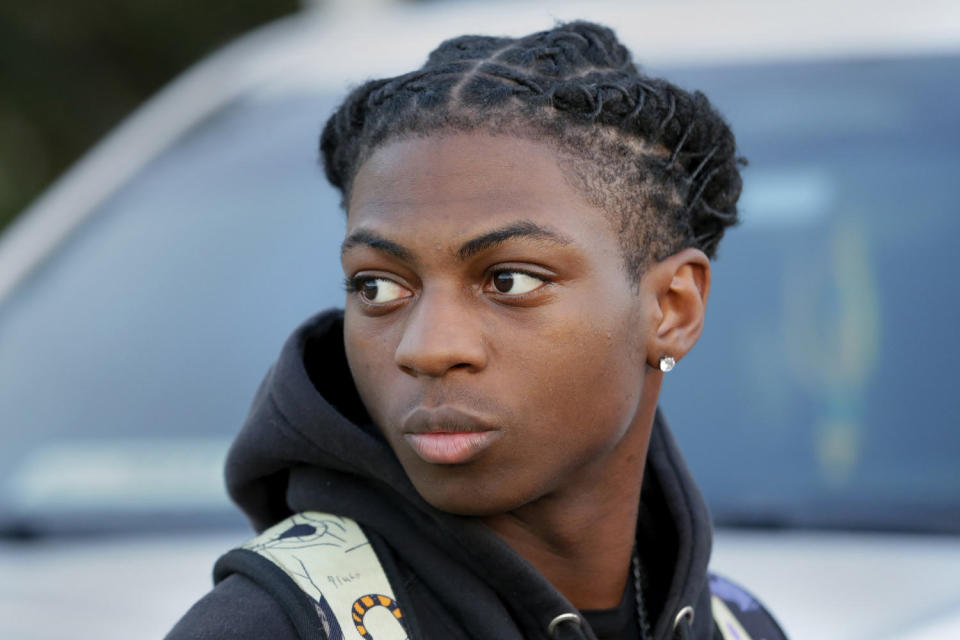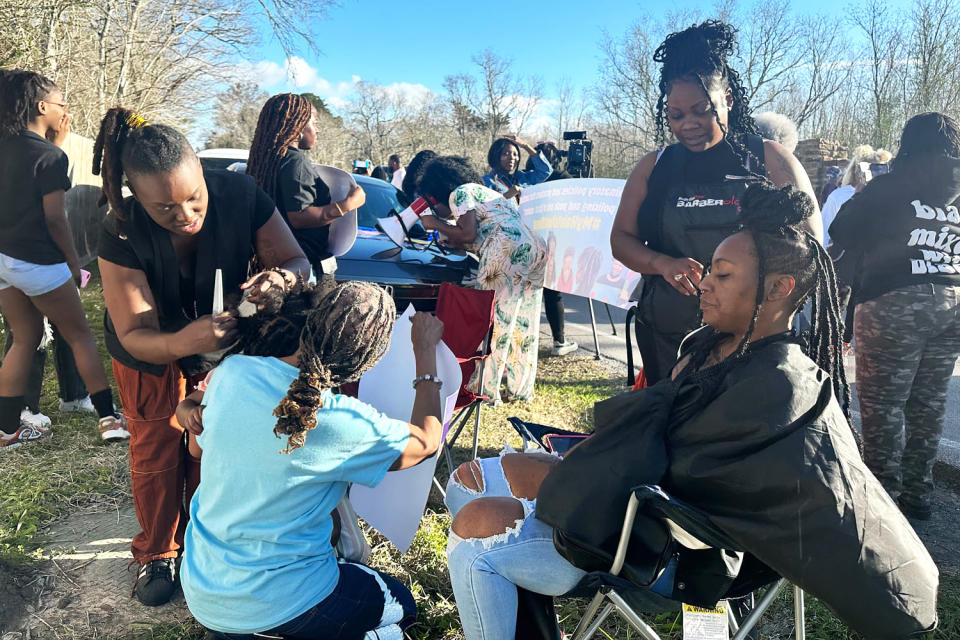Judge rules Texas school’s hair length policies do not violate CROWN Act
ANAHUAC, Texas — A judge on Thursday ruled that a Texas high school was not violating the state’s CROWN Act by punishing a Black teen over the length of his dreadlocks.
State District Judge Chap Cain III said the Barbers Hill Independent School District’s dress and grooming policies do not violate the CROWN Act, which prohibits race-based hair discrimination at work, school and in housing facilities in the state. The decision was met with sighs and gasps by many of those gathered in the courthouse, which included student Darryl George’s supporters and natural-hair advocates.
Cain said the district’s policy “does not prohibit nor does it discriminate against male students who wear braids, locs, or twists.”
Candice Matthews, the family’s spokesperson, told reporters after the trial that George left with tears in his eyes and lamented the decision.
“All because of my hair?” he said, according to Matthews. “I can’t get my education because of my hair. I can’t be around my peers and enjoy my junior year because of my hair.” Matthews said the family has vowed not to “lay down. They would continue to fight.”
The decision is the latest development in a monthslong battle between George’s family and the Barbers Hill Independent School District.
“We appreciate clarification for the court because it’s an important question,” Sara Leon, a representative for the district, said of the ruling. “We’re glad to understand what the law means.”
George, a junior at the school in Mont Belvieu, outside of Houston, has been in in-school suspension or at an off-site disciplinary program since August, when school officials said George’s hair violated a district dress code regulating the length of boys’ hair.

George and his family have refused to cut his hair, which he wears neatly braided on top of his head, away from his face and neck. They argued that George’s punishment violates the state’s newly implemented CROWN Act. The district disputed the claim, holding that the law doesn’t address hair length.
According to the student handbook, male students’ hair cannot extend past the eyebrows or earlobes.
The district filed a lawsuit in September, requesting that a judge clarify whether that’s the case. Last month, Cain ordered the case to go to trial.
The case boiled down to whether the district’s length regulations were in violation of the CROWN Act. Cain ruled on Thursday that they were not.

“The CROWN Act does not render unlawful those portions of Barbers Hill’s” dress code, he said.
Leon, the district representative, said during the trial that the district’s policy is consistent with the CROWN Act and prevents the school from discriminating against George based on wearing dreadlocks, “but he can’t wear them at a length that exceeds the dress code.”
She reiterated the district’s claim that hair length is not covered by the law, and arguments that include length amount to “additional protections beyond the prohibition of discrimination, protections that would supersede other race-neutral school policies.”
Allie Booker, the George family’s attorney, disagreed. She said that protective styles often require length, achieved by adding synthetic or human hair to a person’s hair. Under Barbers Hill’s policy, it would be impossible for students to wear protective styles, Booker said.

“There is no CROWN Act, not at BHISD,” she said, referring to the school. She added later in her closing argument: “Their grooming code attacks the style.”
During the trial, Booker called to the stand state Rep. Ron Reynolds, who helped write Texas’ CROWN Act. He said that length is included in the law.
“Length was inferred with the very nature of the style,” Reynolds told the court. “Anyone familiar knows it requires a certain amount of length” for most protective styles.
After the trial, Reynolds told reporters outside the courthouse that legislators will pursue more legislation “so that Barbers Hill cannot skirt behind a loop hole” and continue to “discriminate against students.”
Booker said the family plans to appeal the decision.
This is not the first time the district has been at the center of a dispute over its hair policies. In 2020, two students filed lawsuits after they were suspended over the length of their dreadlocks. Both students withdrew from the school, and the lawsuits are pending. One of them eventually returned after a judge granted a temporary injunction for him to return to campus.
For more from NBC BLK, sign up for our weekly newsletter.
This article was originally published on NBCNews.com

